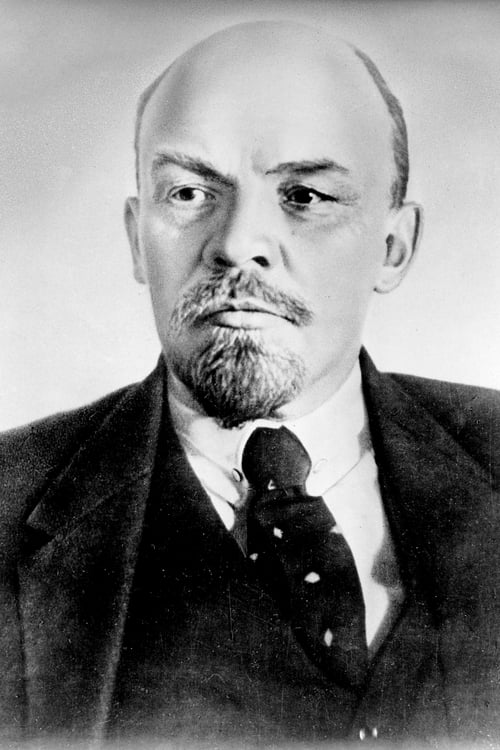Vladimir Lenin
출생 : 1870-04-21, Simbirsk
사망 : 1924-01-21
약력
러시아 혁명가, 마르크스주의의 주요 이론가, 소련 정치가 및 정치가, 러시아 사회민주노동당 "볼셰비키"의 창시자, 러시아에서 1917년 10월 혁명의 주요 조직자이자 지도자, 러시아 인민위원회 초대 의장 RSFSR과 사회주의 국가 최초의 세계사 창시자 인 소련 인민위원회. 마르크스주의자, 선전가, 이데올로기, 제3(공산주의) 인터내셔널 창시자, 소비에트 사회주의 공화국 연합의 창시자. 그의 주요 정치 및 저널리즘 작업 범위는 유물론 철학, 마르크스주의 이론, 반자본주의 및 반제국주의, 사회주의 혁명 수행의 이론과 실천, 사회주의와 공산주의 건설, 사회주의 정치 경제입니다. Vladimir Ulyanov (Lenin)의 역사적 역할에 대한 의견과 평가는 매우 극적입니다. 레닌의 활동에 대한 긍정적 또는 부정적 평가와 관계없이 많은 비공산주의 학자들조차도 그를 세계사에서 가장 중요한 혁명적 정치가로 간주합니다.
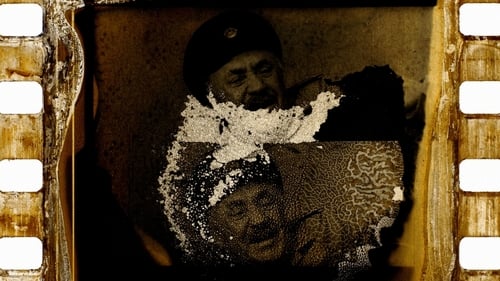
Self - Politician (archive footage)
Atlantic Ocean, off the coast of Iceland, July 9, 2016. The surprising discovery of a canister —containing four reels of The Village Detective (Деревенский детектив), a 1969 Soviet film—, caught in the nets of an Icelandic trawler, is the first step in a fascinating journey through the artistic life of film and stage actor Mikhail Ivanovich Zharov (1899-1981), icon and star of an entire era of Russian cinema.

Self - Politician (archive footage)
Vladimir Ilyich Ulyanov, better known as Lenin, is remembered as the instigator of the October Revolution of 1917 and, therefore, as one of the men who changed the shape of the world at that time and forever, but perhaps the actual events happened in a way different from that narrated in the history books…
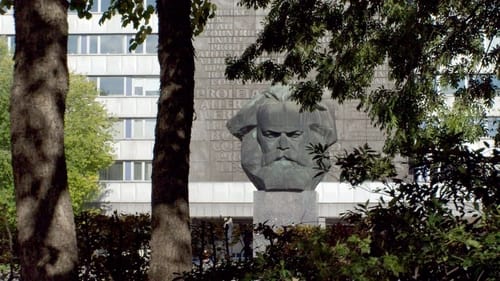
Self (archive footage)
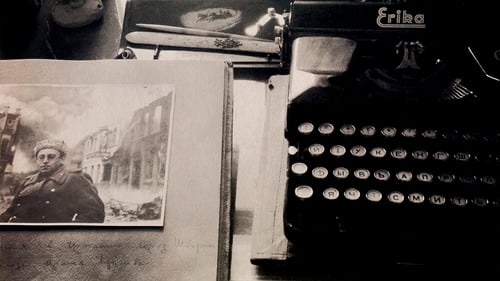
Self - Politician (archive footage)
The convoluted and moving story of Russian writer Vassili Grossman (1905-64) and his novel Life and Fate (1980), a literary masterpiece, a monumental and epic account of life under Stalin's regime of terror, a defiant cry that the KGB tried to suffocate.

Himself - Politician (archive footage)
Russia, 1917. After the abdication of Czar Nicholas II Romanov, the struggle for power confronts allies, enemies, factions and ideas; a ruthless battle between democracy and authoritarianism that will end with the takeover of the government by Vladimir Lenin and the Bolsheviks.

Self (archive footage)
Starting in 1881 this film shows the personal battle between Lenin's Ulyanov family and the royal Romanovs that eventually led to the Russian revolution.
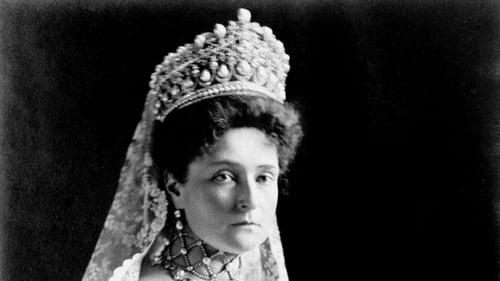
Himself (archive footage)
St. Petersburg, Russia, December 30th, 1916. Grigori Rasputin is assassinated. The story of the humble peasant who became the most influential adviser to czarina Alexandra Feodorovna, wife of the last czar, Nicholas II Romanov.

Himself - Politician (archive footage)
Spain, 1937. Ramón Mercader, a young communist combatant, is recruited and trained by the Soviet intelligence service to participate in a top secret mission ordered by the ruthless dictator Joseph Stalin: the assassination of his former political rival, Leon Trotsky, who is living in exile in Mexico.

Self (archive footage)
In the last 250 years, free-market ideology has played a central role in the development of the logic and rhetoric that have influenced the daily life of populations throughout the world. It was cornered for a few decades during the twentieth century in favor of a social economy for the public interest, and then returned to the limelight in the last thirty years of the century to dominate the logics that drive world economies, doing the favor of the elites at the expense of 99%. Through the testimony of six people informed about the facts, Laissez-faire offers a historical and ideological perspective through which to identify the fundamental problems of the economic mechanism on which societies are based.

Self (archive footage)
The real reasons and orchestrators behind Hitler, to an incredible theory of the JFK assassination, all the way to 9/11 and the current age of the terrorist. Taken from an historical perspective starting around World War 1 leading to present day.

Himself (archive footage)
Yekaterinburg, Russia, July 17th, 1917. Czar Nicholas II Romanov and his entire family are brutally murdered by the Bolsheviks. This tragic event puts an end to the long dynasty that had ruled the country with an iron hand since the coronation of Michael I Romanov in 1613.

Himself

Self (archive footage)
Based on the story of Americas enigmatic career of one of the revered architects of the modern world - icon, screen star, and two-term president, Ronald Reagan.

Self (archive footage)
A double portrait of two dictators who were thousands of miles apart but were constantly fixated on each other.

Self (archive footage)
무한 이윤을 추구하는 기업이란 무엇인가? 은 놀랍고도 쇼킹한 자료화면을 풍부하게 이용하여 관객들과 함께 역사와 현대의 '기업'들에 관한 스터디 케이스를 시작한다. 노엄 촘스키, 마이클 무어, CEO 레이 앤더슨과 밀톤 프리에드만의 인터뷰를 통해 미래의 비젼을 명료하게 말하면서 사기업 뒤의 기관에 대한 집요한 기만성을 없애려 하고 있다.

Self (archive footage)
5천년에 걸친 인류 역사에 있어서 가장 중요한 사건은 환경의 변화다. 옛 자연에서 새 자연으로, 즉 자연의 환경에서 테크놀로지의 환경으로 변한 것이다. 이것은 여러 제국들보다 중요하고, 세계 종교보다 강력하며, 대전투보다 결정적이고, 지구상의 온갖 격변보다 훨씬 충격적이다. 는 이러한 환경의 변화를 다루고 있다. 지구상의 조화를 꾀하는 방식이, 자연의 경우 다양한 차이의 미스터리를 통해서라면, 새 자연은 테크놀로지의 균질화를 통해서다. 는 이 단일한 사건의 반영이며, 여기서 우리의 주제는 미디어 그 자체다. 기술의 요람, 테크놀로지의 결정체. 미디어가 바로 우리 이야기이다. 인간은 테크놀로지를 도구로서 이용하는 게 아니라, 아예 삶의 한 방법으로서 테크놀로지를 통해 존재한다. 이제 테크놀로지는 인간에게 있어 산소와 같은 것이 되었고, 인간은 이제 테크놀로지 없이는 살 수가 없다. 테크놀로지의 욕망은 무한하기 때문에, 유한한 자연의 세계를 소모하고 있다. 결국 테크놀로지는 결국 ‘나코이카시’, 즉 전쟁으로서의 삶이다. 삶의 힘에 대한 허가된 공격인 것이다. 는 우리를 지구상 어디에도 없는 곳이자 동시에 어디에나 있는 곳으로 여행을 안내한다. 이미지 그 자체. 그것이 바로 우리의 로케이션 장소다. 여기서는 가상공간이 실제공간을 압도한다. 옛 신들이 폐위되고 새로운 빛의 만신전이 통합된 컴퓨터 회로에서 나타난다. 그것의 진실이 진짜 진실이 된다. 미래와 자연경관, 비극과 반짝이는 희망이 동시에 이미지와 음악의 디지털 파도 속에서 하나로 융합된다. 새로운 세계가 오고 있다. 새로운 세계가 여기 있다. 는 이에 대한 코멘트이다.

Self (archive footage)
Human Remains is a haunting documentary which illustrates the banality of evil by creating intimate portraits of five of the 20th century's most reviled dictators. The film unveils the personal lives of Adolf Hitler, Benito Mussolini, Joseph Stalin, Francisco Franco and Mao Tse Tung. We learn the private and mundane details of their everyday lives -- their favorite foods, films, habits and sexual preferences. There is no mention of their public lives or of their place in history. The intentional omission of the horrors for which these men were responsible hovers over the film.

Himself
In 1978, just after Le fond de l'Air Est Rouge, which mercilessly analyzed the previous ten years of the revolutionary left's momentum until its collapse, Chris Marker made this complementary piece entitled Quand le Siècle a Pris Forme (Guerre et Révolution).
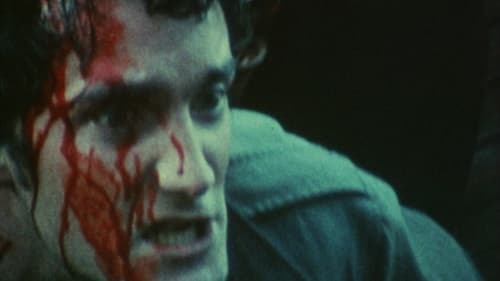
Self (archive footage) (uncredited)
크리스 마커는 시대의 목격자였을 뿐만 아니라 활발한 영화적 실천가였다. 가능한 모든 형식의 영화를 포함한 사진집, 전시 등 그의 광범위한 활동을 돌아보는 것은 마커의 개인적인 정치와 예술 성향뿐만 아니라 세계사를 짚어 보는 일이다. 프랑스를 넘어 세계 역사에 영향을 끼친 68 혁명을 다룬 붉은 대기는 그의 영화 중 가장 정치적이고 전투적인 영화로 당시 세상의 해결책처럼 등장한 ‘새로운 좌파’의 탄생을 사적 에세이 형태로 보여준다. 특정 이념은 과거에 남아 있지만 당시 폭발하기 시작한 세계를 기록한 다큐멘터리, 이미지의 힘은 사상보다 더 위대함을 보여주는 작품이다.
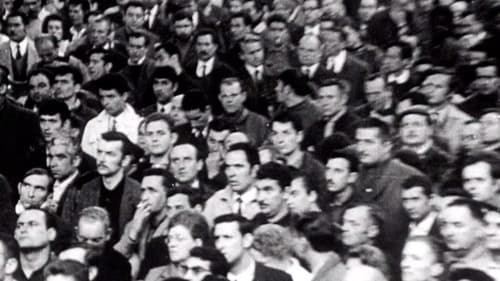
himself (archive footage)
Guy Debord's analysis of a consumer society.

Philosophical essay about the October Revolution of 1917 in Russia, its influence on the destiny of the world in the 20th century.

Self (archive footage)
Traces the origins and actions of World War I, from the funeral of Britain's King Edward VII to the Versailles Treaty.
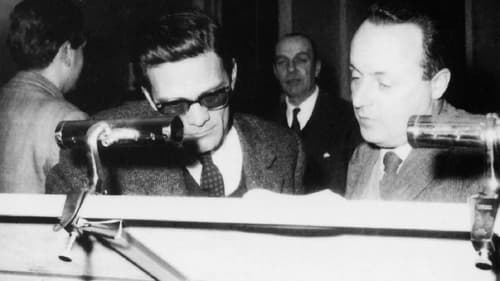
Self (archive footage)
Documentary footage (from the 1950s) and accompanying commentary to attempt to answer the existential question, Why are our lives characterized by discontent, anguish, and fear? The film is in two completely separate parts, and the directors of these respective sections, left-wing Pier Paolo Pasolini and conservative Giovanni Guareschi, offer the viewer contrasting analyses of and prescriptions for modern society. Part I, by Pasolini, is a denunciation of the offenses of Western culture, particularly those against colonized Africa. It is at the same time a chronicle of the liberation and independence of the former African colonies, portraying these peoples as the new protagonists of the world stage, holding up Marxism as their "salvation", and suggesting that their "innocent ferocity" will be the new religion of the era. Guareschi's part, by contrast, constitutes a defense of Western civilization and a word of hope, couched in traditional Christian terms, for man's future.

Self (archive footage) (uncredited)
Documentary compiled from archives and accompanied by a poet's commentary, shows the sweep of modern Italian history from 1911 to 1961, centering on the conditions leading to Fascism and the post-WWII reaction to the Fascist experience.

(archive footage)

Self (archive footage)
A documentary about the threat of war breaking out in Europe, focusing on Hitler, Stalin and Mussolini.
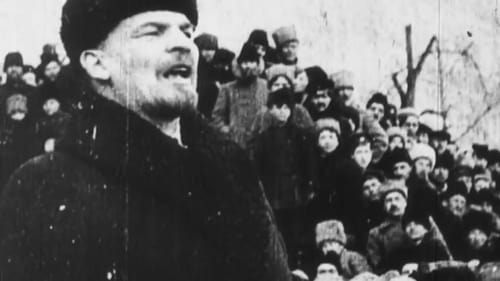
Self (archive footage)
A documentary film account of the Russian Revolution, based on archival footage.
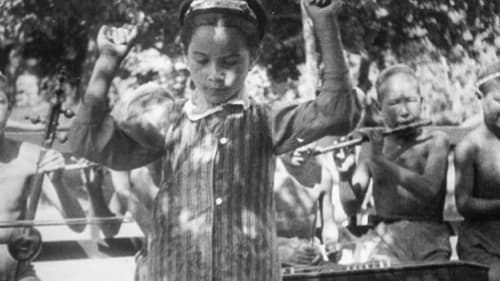
Himself
This documentary, made up of 3 episodes, is based on three songs sung by anonymous people in Soviet Russia about Vladimir Ilyich Lenin.
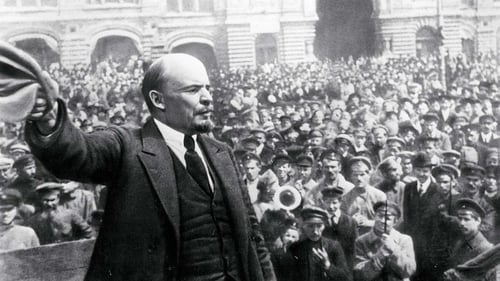
Self (archive footage)
The Fall of the Romanov Dynasty was pieced together by documentarian Esfir Shub from material recorded between 1913 and 1917, and represents the final years leading up to the Russian Revolution. Through editing, Shub casts a critical, ironic light on the former czarist regime. The Fall of the Romanov Dynasty is the first film in Esfir Shub's trilogy that continued with The Great Road (1927), and concluded with Lev Tolstoy and the Russia of Nicolai II (1928).

Author
The Fall of the Romanov Dynasty was pieced together by documentarian Esfir Shub from material recorded between 1913 and 1917, and represents the final years leading up to the Russian Revolution. Through editing, Shub casts a critical, ironic light on the former czarist regime. The Fall of the Romanov Dynasty is the first film in Esfir Shub's trilogy that continued with The Great Road (1927), and concluded with Lev Tolstoy and the Russia of Nicolai II (1928).

Himself (archive footage)
Dziga Vertov-directed Soviet newsreel made to commemorate the first anniversary of the death of Vladimir Ilich Lenin (21st January 1924 - 1925) drawn from 'The Final Journey', a Pravda feuilleton written on the occasion of Lenin's funeral by the man who had introduced Vertov to cinema, Mikhail Koltsov. Contains: First anniversary of Lenin's death: 1. Assassination attempt on Lenin and Soviet Russia's progress under his leadership / 2. Lenin's illness, death and funeral / 3. The year after Lenin's death

Himself
This film shows us leaders of organizations that emerged after the Russian Revolution.
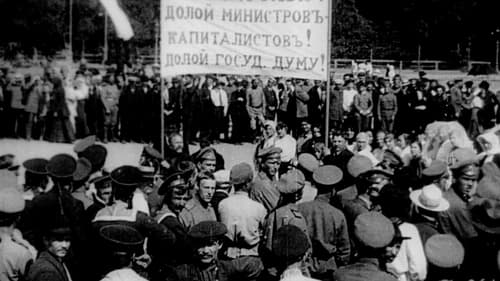
Self - Politician
A chronicle of the Russian Revolution of 1917, from the bourgeois democratic February Revolution to the great socialist October Revolution and the final triumph.
